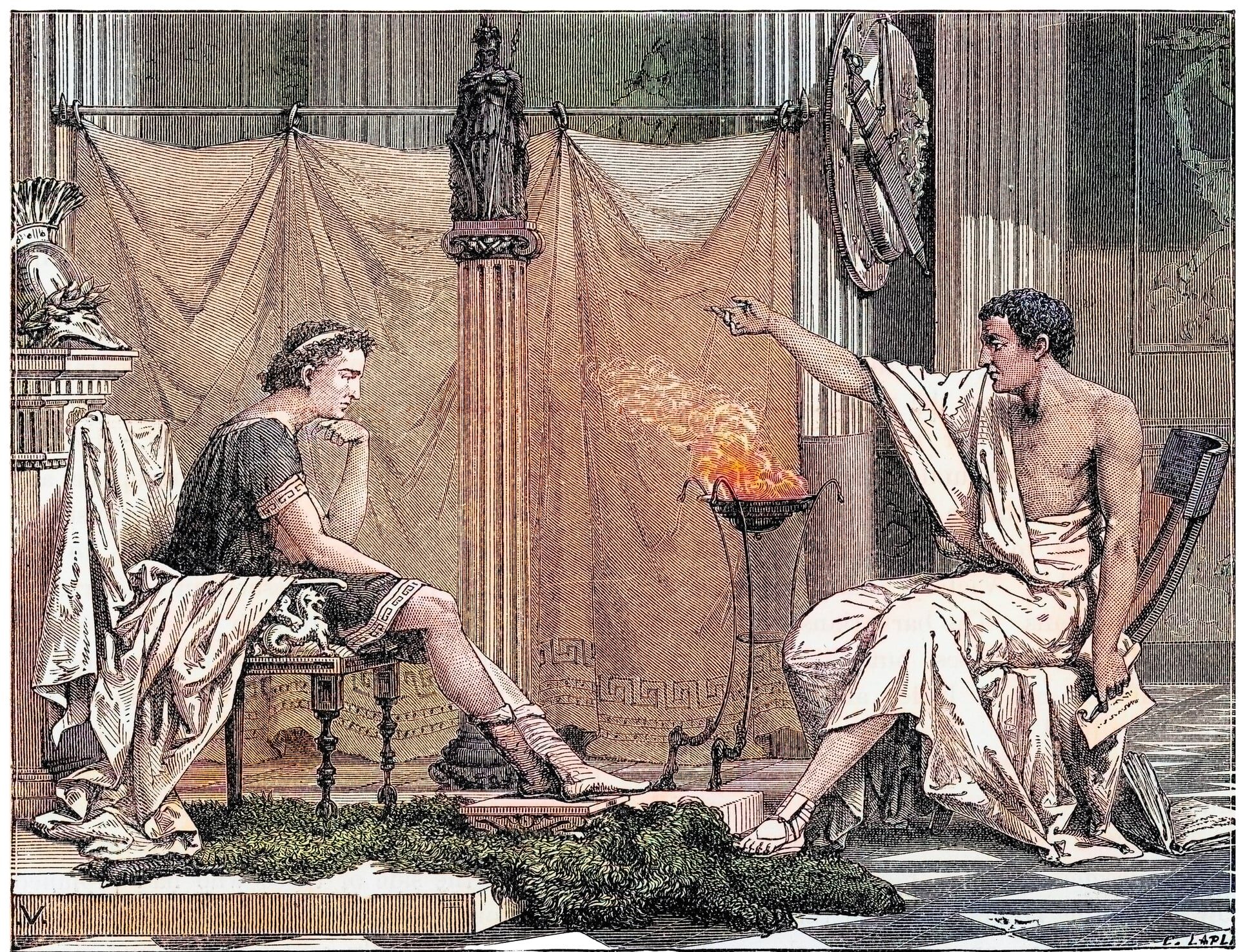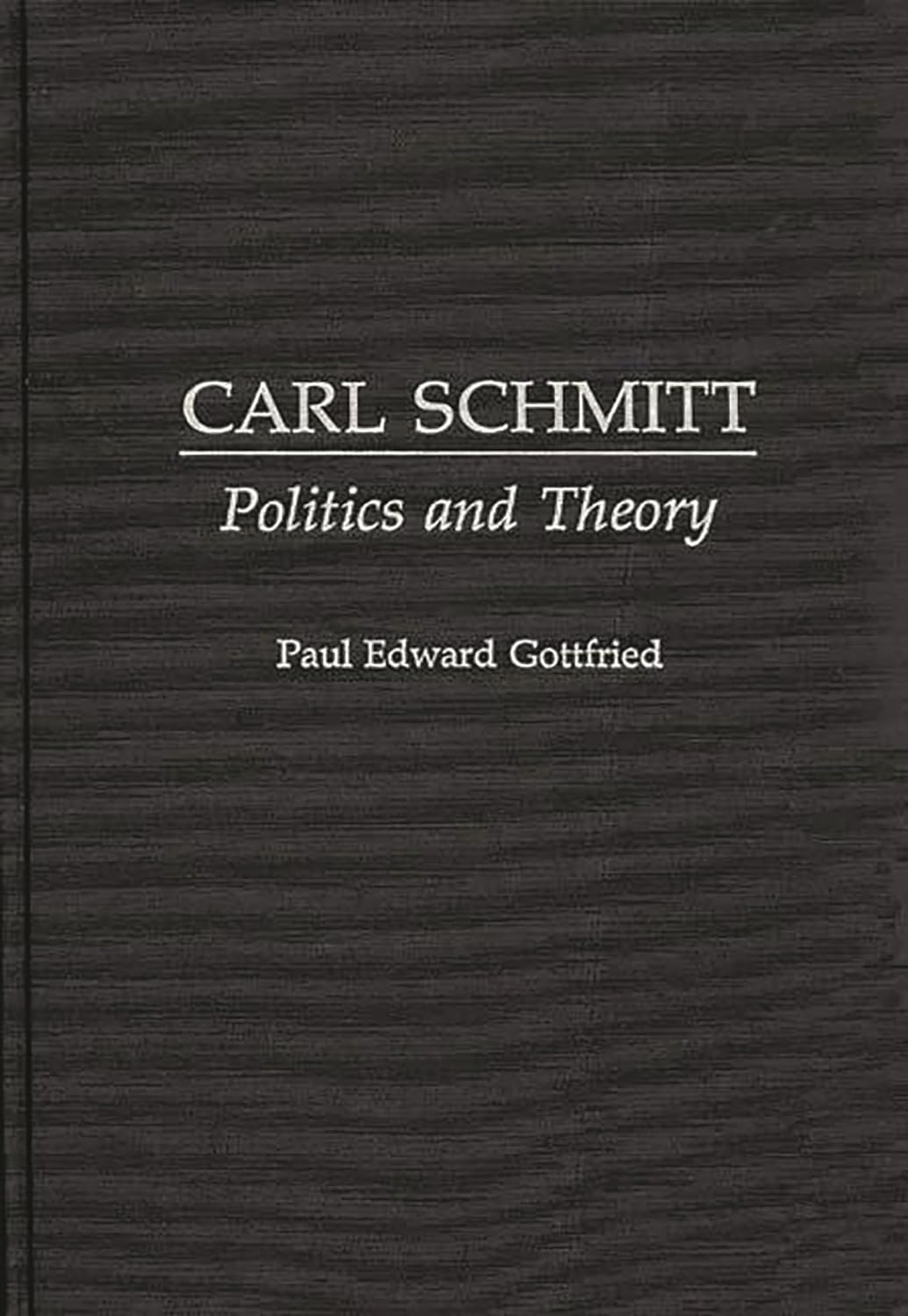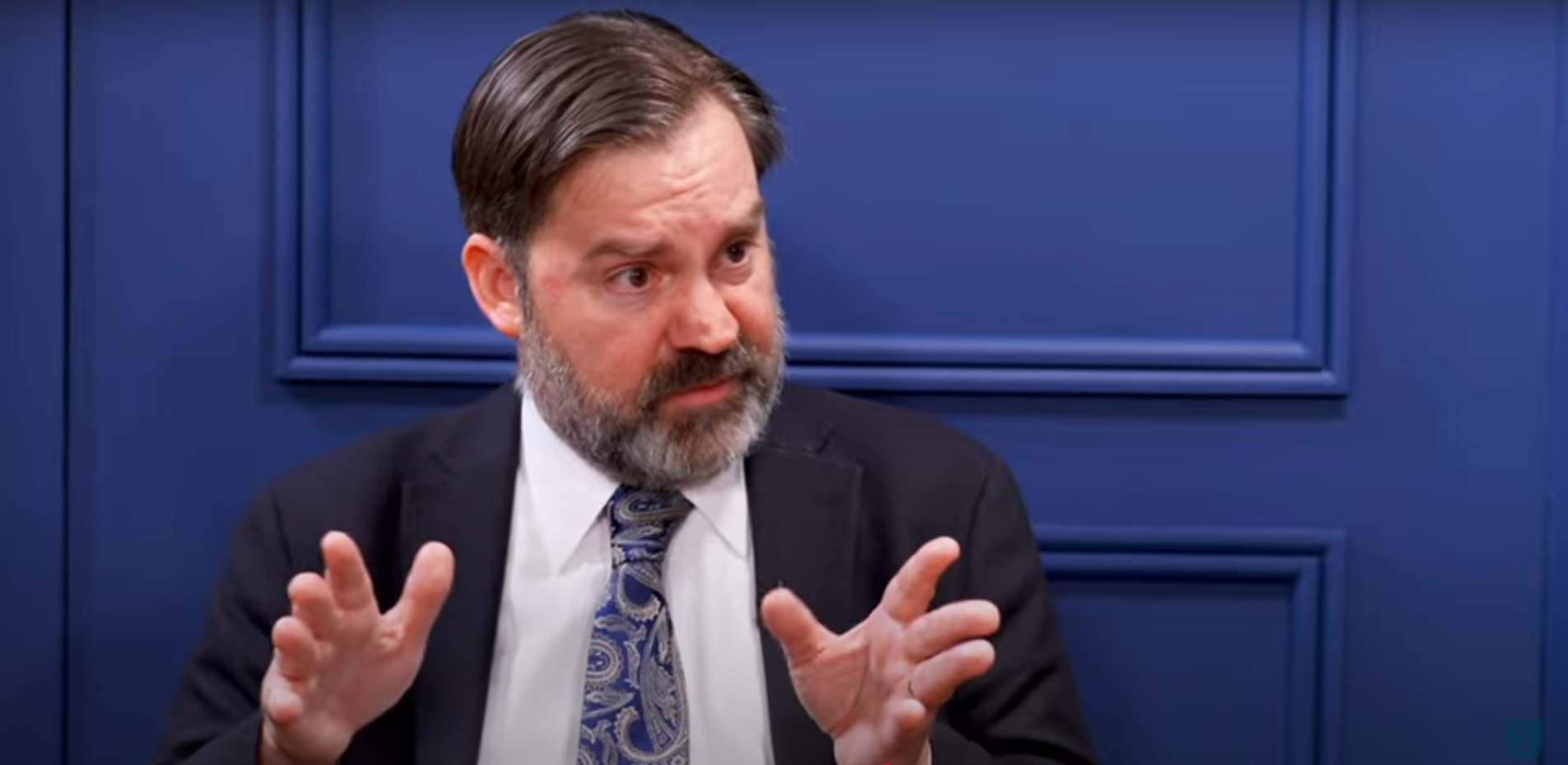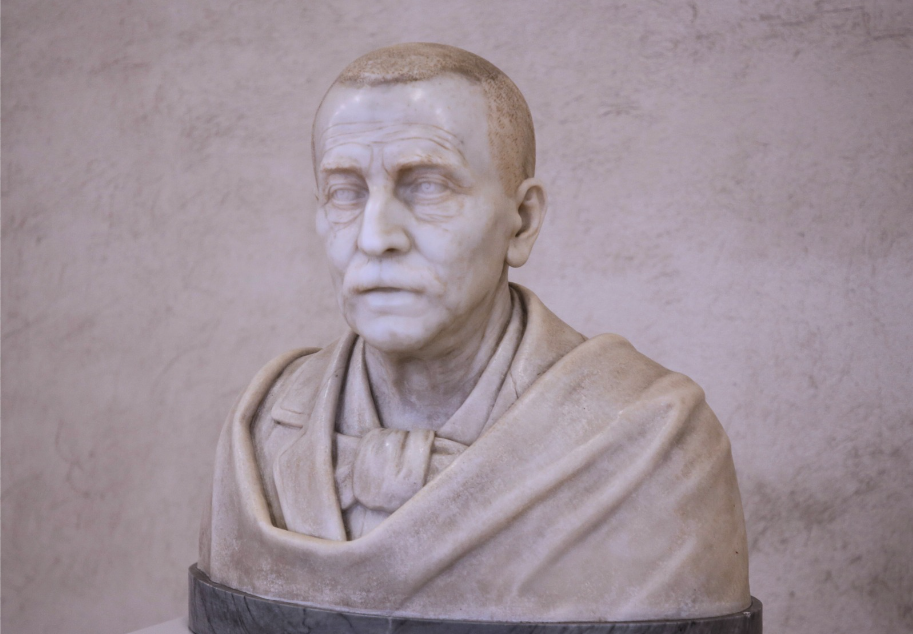Until recently, Americans knew Carl Schmitt, if they knew him at all, as Hitler’s “crown jurist,” a legal and political philosopher who prostituted his talent in order to gain favor with a tyrannical regime. Although in the end he failed to ingratiate himself with the Nazi élite, not least because his ideas clashed so conspicuously with the National Socialist Weltanschauung, his reputation remained an odious one. Few dared even to read his work for fear of contagion. It was only in 1970, twenty-three years after American authorities concluded that they possessed insufficient evidence to indict Schmitt for war crimes, that an American scholar, George Schwab, produced a respectful introduction to the philosopher’s early writings—and he had to go to Berlin to find a publisher.
Six years later Schwab followed up his book with a translation of one of Schmitt’s pivotal works, Der Begriff des Politischen, without causing much of a stir. But by 1983, when Princeton University Press published Joseph W. Bendersky’s Carl Schmitt: Theorist for the Reich, a Schmitt renascence was in full swing on the European continent, and in a belated effort to keep pace, Thomas McCarthy, General Editor of the MIT Press’s Studies in Contemporary German Social Thought, commissioned translations of three important Schmitt entries: Political Romanticism, Political Theology, and The Crisis of Parliamentary Democracy.
Thanks to these pioneering undertakings, English-language readers can now learn for themselves why Schmitt, despite his character flaws, was one of this century’s most provocative and illuminating political thinkers. That few of them take advantage of the opportunity has less to do with the German’s Nazi past than with his disquieting and unfashionable answers to urgent contemporary political questions. Or so Paul Edward Gottfried, author of this profound engagement with Schmitt’s ideas, persuasively maintains.
The thematic focus of Schmitt’s theoretical and practical preoccupations, Professor Gottfried argues, was the contemporary assault on the “sovereign state,” that which had arisen in the sixteenth and seventeenth centuries. A witness of the violence and political extremism that threatened the existence of the young Weimar Republic, Schmitt warned his countrymen that a parliamentary government, founded upon liberal faith in discussion and compromise, could not preserve public order. In that way, he took his place in the tradition of Catholic counter-revolutionary thought identified with Joseph de Maistre and Juan Donoso Cortés, who, in the aftermath of the revolutionary eruptions of 1789 and 1848, offered similar critiques of liberalism.
Like Maistre and Donoso Cortés, Schmitt believed that man was inherently evil, not, as most liberals insisted, good. It followed that disorder constituted an ever-present danger and that only a sovereign state possessed the power and authority required to maintain civil peace. Liberals deceived themselves if they believed that appeals to the rule of law sufficed to ensure the continued existence of the established government; such a faith in the ability of a parliamentary regime to domesticate revolutionary movements which refused to recognize the existing rule of law constituted what Schmitt called a “political theology,” the political counterpart of Deism’s confidence in the unimpeded working of nature’s laws.
Developing the theme of political theology further, Schmitt reminded his readers that God, as Sovereign, stood outside of nature as the creator and guarantor of its laws. In like manner, he argued, the sovereign state stood outside of, and guaranteed, the rule of law, for it alone could “decide on the exception,” could, that is, declare when the rule of law had broken down and when extralegal authority—a “commissarial dictatorship”—was needed to restore its orderly functioning. When the Great Depression reached Germany and the Weimar Republic had to confront the prospect of a Nazi or Communist seizure of power, Schmitt urged President Paul von Hindenburg to protect the government from its fanatical enemies by using the emergency dictatorial powers invested in him by Article 48 of the constitution. Instead, as we know, the octogenarian placed legality above self-preservation; he appointed Hitler Chancellor and thereby destroyed the order he had sworn to uphold.
Gottfried tells this story clearly and concisely and devotes an analytically sophisticated chapter to Schmitt’s affinity for Thomas Hobbes before turning to the German’s famous argument in The Concept of the Political, according to which the distinction between “friend” and “enemy” defines “the political.” Politics, in other words, is not about solidarity, but about antagonism. That did not mean that war was a positive good, but rather that international and civil strife was a perennial possibility that could not be wished away. Such a conception of the political, Schmitt hastened to add, had long coexisted with the idea of a self-limiting state, one that regarded its adversary as a rival, not the incarnation of evil, and that considered its duty to be the protection of the state and its citizens, not the assimilation of or the surrender to—civil society, much less the reconstruction of the world in accordance with the prescriptions of some ideology.
Gottfried laments the fact that Schmitt’s Cassandra-cries went unheeded and that, as a result, the sovereign state is now under siege, but he registers his personal debt to the German thinker for helping him to understand “why the extension of government often coincides with its growing inability to maintain public order.” In a probing essay entitled “The Tyranny of Values,” Schmitt maintained that politics had come to center on “values” rather than on the definable interests of sovereign states. The promotion of those values, in reality the enthusiasms of an influential and assertive clerisy, “leads to the eternal struggle of values and world views, to a war of all against all, to an eternal bellum omnium contra omnes, in comparison to which the murderous state of nature in the political thought of Thomas Hobbes is a true pastoral scene.”
This, Gottfried contends, is the interpretive key to our present political crisis. The demonstrated virtues of the sovereign state—its independence of civil society, its firm resolve to maintain public order at home and defend the national interest abroad—have been lost. Western states, very much including the United States, now intervene routinely in civil society in order to advance a radical social agenda, and in the world at large to pursue the imperialistic chimera of “global democracy,” yet they are paralyzed when faced with pandemic crime and disorder. Having lost confidence in their own legitimacy, they fear to take any measures that are not, as Gottfried puts it, “culturally sanctioned or that are thought to contradict ‘public opinion,’” which is formed by those who impose upon it such allegedly universal values as “democracy” and “human rights.” If there is any lingering hope that they may yet regain their nerve and their senses, it is due to those, like Paul Gottfried, who possess the courage to speak the truth in a land grown accustomed to ideological deception and intimidation.
Lee Congdon is a historian and author specializing in Hungarian intellectual thought.
















